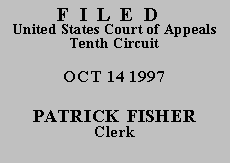

| ANDREW NELSON NEEDHAM,
vs.
JOHN SHANKS, Warden, and
ATTORNEY GENERAL OF THE
STATE OF NEW MEXICO |
|
In his ineffective assistance claim, Mr. Needham alleges that his counsel conspired with the trial judge to fill New Mexico's prisons and deprive him of his rights, and that counsel waived Mr. Needham's rights by failing to raise the double jeopardy, custodial interrogation, and state law arguments he asserts here. See I R. doc. 1 at 5- 5(e). Because we agree with the Magistrate Judge that Mr. Needham's claims are without merit, counsel's failure to raise those issues below was not erroneous. Since Mr. Needham cannot establish his counsel's performance was deficient, we need not examine whether counsel's failure to raise these issues prejudiced Mr. Needham. See Strickland v. Washington, 466 U.S. 668, 687 (1984).
We also find no merit to Mr. Needham's argument that his conviction violates double jeopardy because he was punished when prison officials took away one year of "good time" in an administrative proceeding. This circuit has long held that criminal judicial proceedings following administrative punishments imposed by prison officials do not violate the double jeopardy clause. See United States v. Rising, 867 F.2d 1255, 1259 (10th Cir. 1989) (citing United States v. Boomer, 571 F.2d 543 (10th Cir. 1978); United States v. Acosta, 495 F.2d 60 (10th Cir. 1974); United States v. Hedges, 458 F.2d 188 (10th Cir. 1972); Hutchison v. United States, 450 F.2d 930 (10th Cir. 1971)).
Finally, we need not examine Mr. Needham's post-conviction attack on the application of N.M. Stat. Ann. § 30-22-9 or the imposition of an eight-year enhancement on the basis of his status as an habitual offender, as these pure state law claims raise no constitutional issues and are thus not reviewable in federal habeas proceedings. See Montoya v. New Mexico, 55 F.3d 1496, 1499 (10th Cir. 1995).
Because Mr. Needham has not made "a substantial showing of the denial of a constitutional right," 28 U.S.C. § 2253(c)(2), we DENY his Application for a Certificate of Appealability and DISMISS the appeal.
Entered for the Court
Paul J. Kelly, Jr.
Circuit Judge
*. This order and judgment is not binding precedent, except under the doctrines of law of the case, res judicata, and collateral estoppel. This court generally disfavors the citation of orders and judgments; nevertheless, an order and judgment may be cited under the terms and conditions of 10th Cir. R. 36.3.
**. After examining the briefs and the appellate record, this three-judge panel has determined unanimously that oral argument would not be of material assistance in the determination of this appeal. See Fed. R. App. P. 34(a); 10th Cir. R. 34.1.9. The cause is therefore ordered submitted without oral argument.